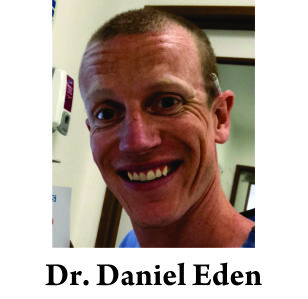Drowning Continuing Education in Anaesthesia Critical Care Pain
Vol 4 | Issue 3 | Sep-Dec 2018 | page: 30-32 | Daniel Eden
Authors: Daniel Eden [1]
[1] Department of Speciality Registrar (ST5 Anaesthetics) – Worcestershire Royal Hospital, Worcester, United Kingdom
Address of Correspondence
Dr. Daniel Eden,
Specialty Registrar (ST5 Anaesthetics) – Worcestershire Royal Hospital, Worcester, United Kingdom.
Email: daniel.eden@doctors.net.uk
Abstract
Hypothermia increases the ischemic tolerance of the brain and can lead to a remarkable recovery in prolonged cardiac arrest. Neurological outcomes can be very favorable, particularly if cardiac arrest precedes hypothermia or if the onset of hypothermia following cardiac arrest is rapid. Case reports of good neurological recovery following up to 7 h submersion and core temperatures as low as 13.7°C can be found. Our case involved a 43-year-old male who presented following a collapse and out of hospital cardiac arrest. A 34 min period of face-down submersion in a canal on a cold February evening was followed by a brief period of cardiopulmonary resuscitation on extrication. He was transferred to our emergency department with a core temperature of 26°C. He went onto make a full neurological recovery. The UK's temperate climate means that case reports of prolonged hypothermic cardiac arrest are rare. While this gentleman had many favorable circumstances to his predicament, including age, cardiovascular fitness and rapid cooling, prompt and effective resuscitation, and a controlled warming regime would also have contributed.
Keywords: Hypothermia cardiac arrest, neurological recovery.
References
- . Hilmo J, Naesheim T, Gilbert M. Nobody is dead until warm and dead: Prolonged resuscitation is warranted in arrested hypothermic victims also in remote areas-a retrospective study from Northern Norway. Resuscitation 2014;85:1204-11.
- Tahsili-Fahadan P, Farrokh S, Geocadin RG. Hypothermia and brain inflammation after cardiac arrest. Brain Circ 2018;4:1-3.
- Wollenek G, Honarwar N, Golej J, Marx M. Cold water submersion and cardiac arrest in treatment of severe hypothermia with cardiopulmonary bypass. Resuscitation 2002;52:255-63.
- Gilbert M, Busund R, Skagseth A, Nilsen PA, Solbø JP. Resuscitation from accidental hypothermia of 13.7 degrees C with circulatory arrest. Lancet 2000;355:375-6.
- Perk L, Borger van de Burg F, Berendsen HH, van't Wout JW. Full recovery after 45 min accidental submersion. Intensive Care Med 2002;28:524.
- Friberg H, Rundgren M. Submersion, accidental hypothermia and cardiac arrest, mechanical chest compressions as a bridge to final treatment: A case report. Scand J Trauma Resusc Emerg Med 2009;17:7.
- Eich C, Bräuer A, Timmermann A, Schwarz SK, Russo SG, Neubert K, et al. Outcome of 12 drowned children with attempted resuscitation on cardiopulmonary bypass: An analysis of variables based on the "Utstein style for drowning". Resuscitation 2007;75:42-52.
- Buse S, Blancher M, Viglino D, Pasquier M, Maignan M, Bouzat P, et al. The impact of hypothermia on serum potassium concentration: A systematic review. Resuscitation 2017;118:35-42.
- Carter E, Sinclair R. Drowning. Continuing education in anaesthesia. Crit Care Pain 2011;11:210-3.
- Mair P, Kornberger E, Furtwaengler W, Balogh D, Antretter H. Prognostic markers in patients with severe accidental hypothermia and cardiocirculatory arrest. Resuscitation 1994;27:47-54.
- Semple-Hess J, Campwala R. Pediatric submersion injuries: Emergency care and resuscitation. Pediatr Emerg Med Pract 2014;11:1-21.
- Zuckerbraun N, Saladino R. Pediatric drowning: Current management strategies for immediate care. Clin Paediatr Emerg Med 2005;6:49-56.
- Bender PR, Debehnke DJ, Swart GL, Hall KN. Serum potassium concentration as a predictor of resuscitation outcome in hypothermic cardiac arrest. Wilderness Environ Med 1995;6:273-82.
- Farstad M, Andersen KS, Koller ME, Grong K, Segadal L, Husby P, et al. Rewarming from accidental hypothermia by extracorporeal circulation. A retrospective study. Eur J Cardiothorac Surg 2001;20:58-64.
- Kriz D, Piantino J, Fields D, Williams C. Pediatric hypothermic submersion injury and protective factors associated with optimal outcome: A case report and literature review. Children (Basel) 2017;5:4.
How to Cite this Article: Eden D. Full Neurological Recovery Following a Hypothermic, Near-drowning, and Cardiac Arrest with a 34-min Submersion Time: A Case Report. Journal of Anaesthesia and Critical Care Case Reports Sep-Dec 2018; 4(3):30-32.
(Abstract) (Full Text HTML) (Download PDF)
.
Source: http://jaccr.com/full-neurological-recovery-following-a-hypothermic-neardrowning-and-cardiac-arrest-with-a-34-min-submersion-time-a-case-report/

0 Response to "Drowning Continuing Education in Anaesthesia Critical Care Pain"
Postar um comentário